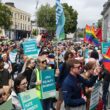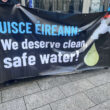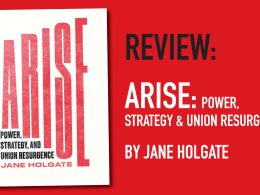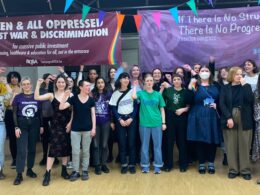200+ people from 12 counties gathered in Dublin on 9 September for a national meeting of the Anti Household and Water Tax Campaign. Attendees included members of left parties, community activists and people angered by the governments policy of austerity including some from Donegal who have been agitating agains the proposed tax on septic tanks.
The meeting began by dealing with the political backdrop under which the campaign is being fought and the possible manner in which the tax will be implemented. It was chaired by Malachy Steenson of the Workers’ Party. Joe Higgins TD gave an introduction where he pointed to the comments by John Fitzgerald of the ESRI, that he would estimate the combined charges would average €1,200 to €1,300 per year in 2014, pouring water over the assertion from the government that this was only going to be a small charge of €2 a week.
The discussion was then opened to the floor and there was widespread agreement that doing the groundwork for the campaign now was key to the success of the campaign and that ensuring democratic structures were in place in as many towns, cities and villages across the country as possible was vital.
The experience of non-payment campaigns such as the anti bin tax campaign, the campaign against the poll tax in Britain and the anti-water charges campaign, especially the battle that took place in Dublin between 1994-96 were pointed to as examples of where ordinary people organised en masse in their communities against unjust taxation.
The second part of the meeting was chaired by Cllr. Ciaran Perry and focused on strategy and necessary tactics needed in order to defeat the tax.
Gregor Kerr of the WSM gave an introduction and put forward some proposals which were accepted by the attendees. These included a proposal to establish an interim steering commitee made up of representatives from all areas of the country, a proposal to have a national conference in the early part of the new year as well as a proposal to have a national news letter that could be distributed door to door as part of the campaign.
A majority agreed that the key to defeating the household tax, water charges and a property tax was building a community based campaign of mass non-payment.
Hundreds of public meeting will now be organised all over the country. Come along and find out how you can play a part in building the campaign and begin the fight back against a government who are bleeding working class people dry in order to bail out the rich.












